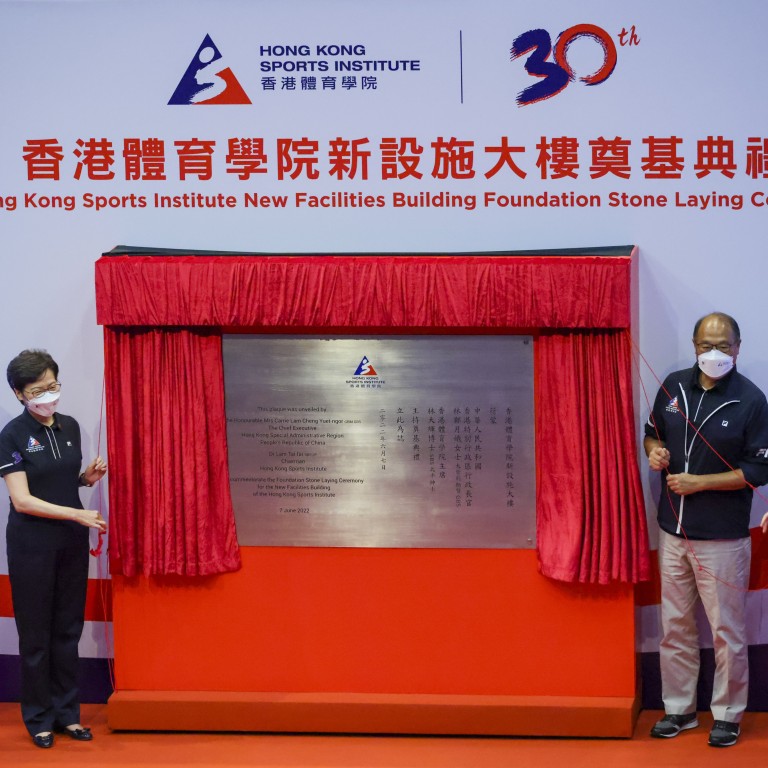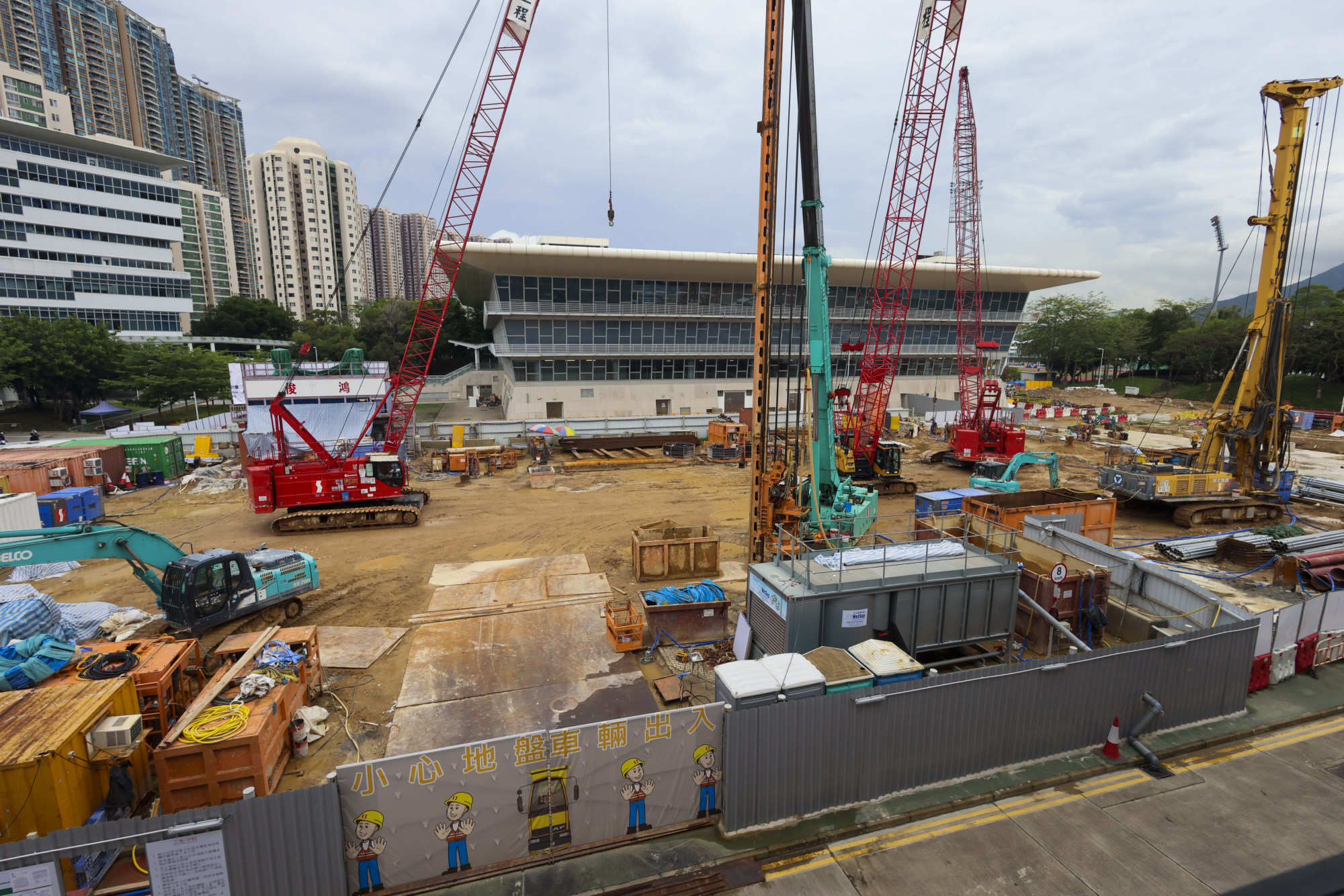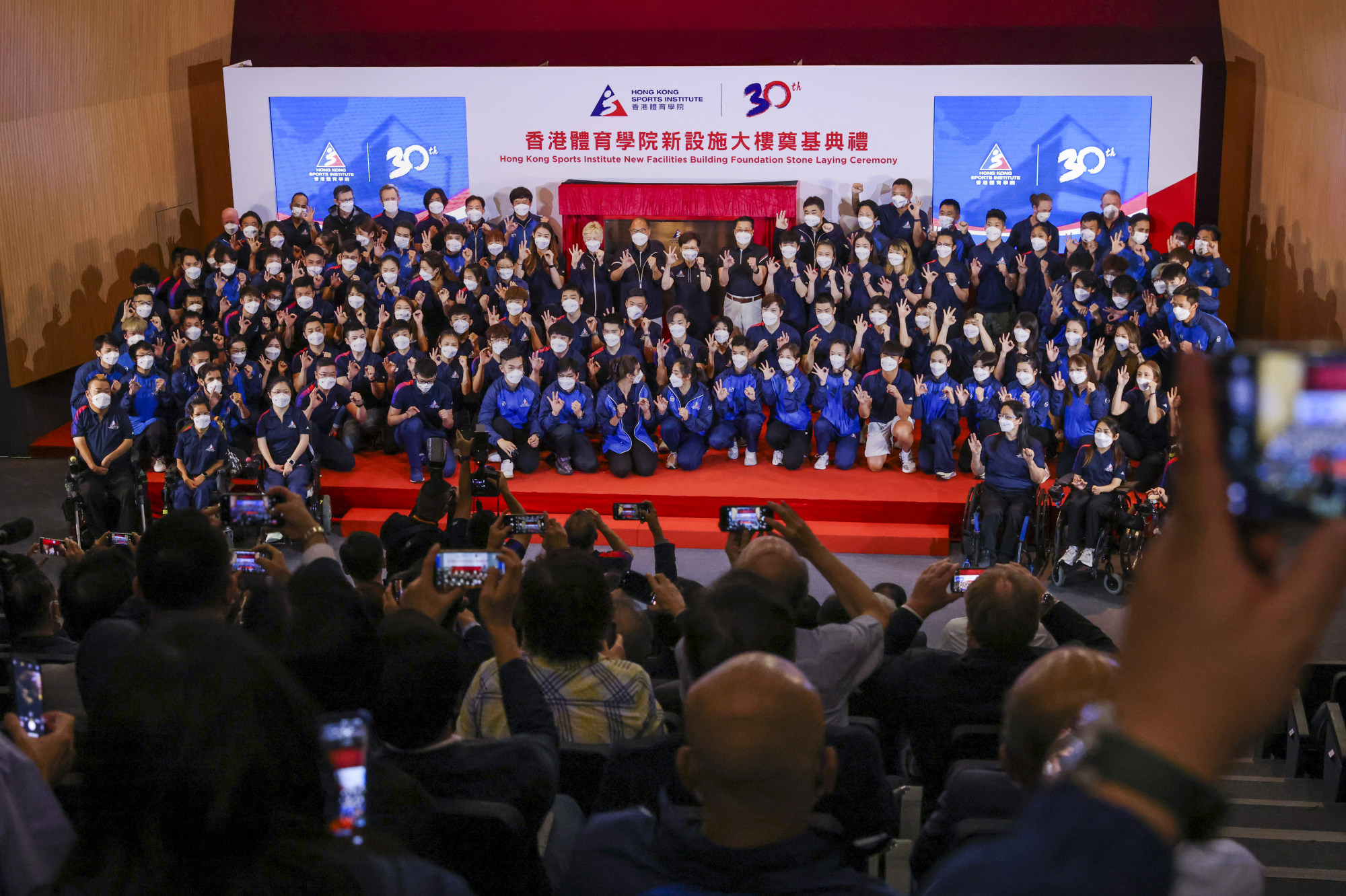
Hong Kong sports boss Lam Tai-fai says elite athletes in city need more cash, at ceremony for new HK$1 billion facility
- Hong Kong Sports Institute chairman Lam Tai-fai says government will be partly to blame if athletes fail to build on Tokyo Olympics success
- Lam also calls for new training facilities to be built in New Territories and for government to buy broadcasting rights to Asian Games and Olympics
A Hong Kong sports official said the government would be to blame if the city’s athletes failed to build on their Tokyo Olympic success, at a ceremony to lay the foundation stone for a new HK$1.04 billion facility funded by taxpayers.
Lam Tai-fai, chairman of the Hong Kong Sports Institute, also called for a new facility to be built in the New Territories and said the government should pay for the broadcasting rights to the Asian Games and the 2024 Paris Olympics.
The local government pumps hundreds of millions of dollars into elite sport in the city every year, and spent some HK$737 million in each of the past two financial years.

Elite athletes, meanwhile, are now paid as much as HK$50,000 a month from the elite training grant. Those not involved in Olympic sports can get up to HK$38,540 a month.
According to Lam Tai-fai, however, that is not enough, and on Tuesday, in the presence of outgoing Chief Executive Carrie Lam Cheng Yuet-ngor, he said he hoped there were “more resources invested in elite sports development than the current administration so that the HKSI can become stronger and more powerful”.
Lam Tai-fai added: “If resources are not enough, the government should be responsible to some extent for our poor performance.
“Secondly, I would like to ask the government to find a place for the HKSI to build a satellite training centre, which could be built in the northern metropolis area to accommodate more elite athletes’ training.”

Neither Lam Tai-fair nor Carrie Lam would answer questions after the ceremony at the institute’s headquarters in Sha Tin, where the new facility is being built.
The project, a three-story building covering around 9,000 square metres (around 96,875 sq ft), will include a multipurpose training hall for sports such as fencing, and table tennis, and a training venue for a number of current and potential future sports, such as karatedo, judo, and dance sports.
There will also be a conditioning centre, training venues, and science laboratory.
Aside from the government’s investment in new facilities, Lam Tai-fai hoped the excitement generated by the city’s historic success in Tokyo, where athletes won an unprecedented six medals, would encourage officials to pay for the broadcasting rights to major events in the future.
“Broadcasting rights not only promote sports in Hong Kong, but they also bring joy to the people,” he said.
“Finally, I hope that the new policy bureau, the Culture, Sports, and Tourism Bureau, will consult with and listen to the HKSI more when developing sports policies.”

